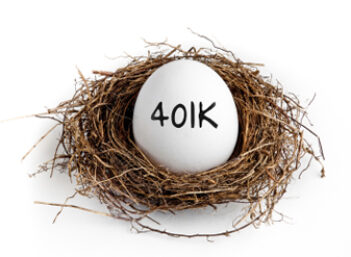What is a 401(k) Plan
A 401(k) plan is a tax-deferred salary savings plan that companies can offer their employees as a retirement account.
How a 401(k) Plan Works
A 401(k) plan meets the tax-deferral requirements of Section 401(k) of the IRS tax code, hence its name. The plan invests contributed funds in a securities portfolio. The composition of the portfolio may vary depending on how plans are managed by the company and on the risk preferences of the employee. In most cases, employees may choose from a variety of portfolio allocations.
Contributions are deducted on a pre-tax basis from payroll. Employees choose how much they want deducted from their salary, up to the maximum allowed by the plan. In many cases, employers will match employee contributions up to a specified percentage and, in some cases, employers may offer additional contributions as part of an incentive package.
The 401(k) plan contains constraints regarding when funds accruing in the account may be withdrawn. Each plan specifies a retirement age when funds may be freely withdrawn. Should the employee choose or need to withdraw funds prior to retirement age, he will incur certain penalties specified in the plan.
To illustrate a 401(k) plan, suppose company XYZ offers a 401(k) to Bob, an employee. Bob's pre-tax paycheck amount is $1,000. Bob decides to make a 10% (or $100) pre-tax contribution to his 401(k) from each paycheck. Each of these $100 contributions are invested in the securities that make up Bob's 401(k) plan.
Why Does a 401(k) Matter
A 401(k) plan provides employees with the opportunity to invest their money in the securities markets for the purpose of setting money aside for retirement without the burden of taxation. In addition, the plan's withdrawal restrictions serve as an incentive for employees not to use the funds and allow them to grow as much as possible.
If your firm offers a 401(k) match, make sure you contribute at least as much as the match percentage—the employer match should be considered free money.
If you are self-employed, even just part-time, you can open a Solo 401(k) plan.



